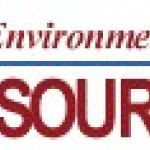- Industrie: Government
- Number of terms: 3992
- Number of blossaries: 2
- Company Profile:
Sampling for and measuring of pollutants present in the atmosphere.
Industry:Pollution control
Safe Drinking and Toxic Enforcement Act of 1986, also known as Proposition 65. This Act is codified in California Health and Safety Code section 25249. 5, et seq. No person in the course of doing business shall knowingly discharge or release a chemical known to the state to cause cancer or reproductive toxicity into water or into land where such chemical passes or probably will pass into any source of drinking water, without first giving clear and reasonable warning to such individual. For more information, please go to OEHHA's Prop 65 website.
Industry:Pollution control
Refers to tanks used to store gasoline underground. For more information, please go to the underground storage tank website.
Industry:Pollution control
Refers to the length of time a compound stays in the atmosphere, once introduced. A compound may persist for less than a second or indefinitely.
Industry:Pollution control
Refers to the vapor pressure of the fuel expressed in the nearest hundredth of a pound per square inch (psi) with a higher number reflecting more gasoline evaporation. (See also Gasoline Volatility. )
Industry:Pollution control
Rules, regulations, local ordinances and land use controls, and other regulatory strategies of air pollution control districts or local governments used to control or reduce emissions associated with new and existing indirect sources. Indirect source control programs include regulatory strategies such as transportation control measures (e.g., South Coast's Regulation XV for employer-based trip reduction); parking charges; land use controls that reduce the need for vehicle travel and increase transit, bicycle, and pedestrian access; and source-specific regulations such as truck idling and travel schedule requirements.
Industry:Pollution control
Rain which is especially acidic (pH <5. 2). Principal components of acid rain typically include nitric and sulfuric acid. These may be formed by the combination of nitrogen and sulfur oxides with water vapor in the atmosphere.
Industry:Pollution control
Pungent, colorless gases (sulfates are solids) formed primarily by the combustion of sulfur-containing fossil fuels, especially coal and oil. Considered major air pollutants, sulfur oxides may impact human health and damage vegetation.
Industry:Pollution control
An air quality standard that prevents, reduces, or minimizes injury to agricultural crops and livestock, damage to and the deterioration of property, and hazards to air and ground transportation.
Industry:Pollution control
